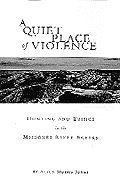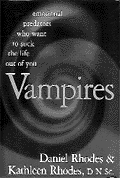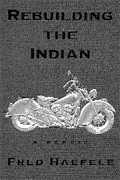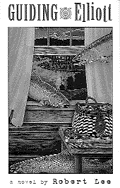SPRING 1998
Volume 15, Number 3


by Allen Morris Jones. Jones ’93 is the editor of The Big Sky Journal.
A Quiet Place of Violence: Hunting and Ethics in the Missouri River Breaks
Bozeman, Montana: Spring Creek Publishing, 1997.141 pp. $25.
Allen Morris Jones has collected in A Quiet Place of Violence his personal meditation on the ethics of hunting, formed while he lived on an isolated ranch in the Missouri Breaks. In this intimate portrait, Jones explores why he hunts. For him, hunting is about discipline, animals, cycles, grace, character and the “process,” a word which appears again and again in the book.
Slipping between a daily account and philosophical musing, Jones attempts his own Walden, a meticulous record of one man’s solitude and his appreciation for the natural world. As he prepares to hunt, he ponders “humanity’s estrangement from nature” and “the importance of experience.” He connects present-day hunting to its ancient roots; he also connects desire and skill, will and control.
A Quiet Place of Violence is a painstaking chronicle, born out of solitude. Jones’ thoughts drift around the page, tighten into questions, melt into philosophy and float in a sea of their own buoyancy.
“Practice is necessary: Hunting and mercy are not exclusive states,” he writes. “Elk call for the most supreme efforts from the hunter...and they are loved extremely.”
By the end of the book, he closes with this thought: “I once had a ranch in the Missouri Breaks. But then I stood in a noiseless, motionless wind and saw a thing: possession is as possession does. And so I will have the Breaks back only when I have become a short, moveable feast. My greatest grandchildren will eat an elk that ate the grass that was grown with strands of my carbon.
“For now, however, I am here only at my convenience.”

| Vampires: Emotional Predators Who Want to Suck the Life Out of You by Daniel Rhodes and Dr. Kathleen Rhodes. Daniel Rhodes (a/k/a Neil McMahon, M.F.A. ’79) has published three novels in which vampires appear. |
If you have been startled and compelled by All About Eve or Othello, Daniel Rhodes and Dr. Kathleen Rhodes have an explanation. These dramas are not just great stories; they feature “emotional vampires,” characters who thrive on destroying people for the sake of it. “Emotional vampirism results from people who crave more emotional energy than they can engender on their own,” the authors write in Vampires. “They drain victims of energy in order to empower themselves.”
We all know someone like this, the authors argue. They illustrate common scenarios - ranging from traffic maneuvers to work encounters - and identify the emotional vampires. By recognizing and defining the emotionally draining behavior, the reader may come to a clearer understanding of a boss, parent or lover.
The book, which easily could be classified as pop psychology, turns out to be a semi-academic investigation with a curl of a smile. The authors combine personal anecdotes with literary references including Bram Stoker’s Dracula to Joseph Conrad’s Heart of Darkness. The personal anecdotes give fascinating, brief histories of emotional vampires, such as the aunt who always visits during a family crisis but ends up stealing or the yuppie couple who torments a contractor with increasingly absurd demands.
Rhodes and Rhodes also have offered a valuable service in eliciting these tales. Each history is finely detailed, as if the teller has been waiting a long time to have someone listen. Gathered from unnamed sources, the anecdotes are cathartic, letting people reveal the ways they have been victimized.
This book will be a comfort to anyone who knows an emotional vampire, because by exploring so many of the telling characteristics, the authors thereby minimize the vampire’s power. After all, the authors write, “the focus of this book...is to explore, recognize and understand certain human behaviors, to increase our understanding of ourselves and others and to learn to regulate our responses in order to move beyond the role of victim.”

| Rebuilding the Indian: A Memoir by Fred Haefele. Haefele, M.F.A. ’81, is a tree surgeon and writer in Missoula. |
Rebuilding the Indian is for many of its pages Fred Haefele’s journey into the country of motorcycle mechanics. As he builds a 1947 Indian Chief, he will name for us every part of that bike - basketcase, risers, plungers, fenders. They are as much the poetry of his life as the language between husband and wife, father and child, friend and friend. With a sharp ear for talk and a poet’s sense of grace, Haefele illustrates all the many worlds that make up a man.
Motorcycles have helped Haefele chart his life, and when he writes of a bike, he has a sly way of sneaking the real story in just behind it. “My wife took the new baby home to live with her parents,” he remembers of his first marriage. “And by that spring I had sold the Lightning and filed for divorce.” He illustrates the bike world with an irresistible cast - Bootsy, Magoo, Bummy, Sneezy and Speedstick - led by Chaz, the mechanic and dealer whose sad marriage and eternal bankruptcy give heat and color to Haefele’s obsessive project.
But the parts of Rebuilding the Indian that will endure long after the smell of Castrol has faded are the details of Haefele’s frustrated relationship with his father (“Minimum Dad”) and his own ruined opportunity with his first son, a boy locked in Haefele’s dreams at age three. When at last he is reunited with his twenty-five-year-old son, “[Kyle] sneaks a look, catches me sneaking a look at him. We both know what it means: Who ARE you?”
Like Don Delillo with a sense of humor, Haefele registers the death of Jerry Garcia, the crash of TWA 800 and a local toxic chlorine spill, and he still mocks himself for a mid-life crisis that has him in his garage “making love to that bike.” Part love letter to his wife, an apology to two grown children and an invitation to a baby not yet born, the book becomes a memoir of invention as the writer examines how he invented and reinvented himself - from changing his first name at age twelve to becoming, again, a husband and father.
Haefele looks back on himself with a wily sort of courage and makes everything he touches - children, marriage, machines and trees - vivid and essential. He thrives on the flourish of the word and flaunts an evident passion for description: his bike’s blue paint job is “ten-feet deep”; a rotting tree, a “funky widowmaker”; his newborn daughter’s sound, a “delicious, hiccuppy laugh.”
Haefele examines his role as father with a clear eye, kids himself around the edges, contemplates those big-limbed trees from which he makes his living and immerses himself in the stage show of the motorcycle world. Through it all, he builds a book, invents a voice. When he speaks of a friend, he could be describing himself: “He paints it with words, he paints it with parts. It’s the possibilities that move Chaz, and not the fact.”

| Guiding Elliott by Robert Lee. Lee, M.F.A. ’96, lives in Missoula. |
“Dear Piscatorial Partners,” begins Robert Lee’s first novel that is written in the form of letters from Montana fishing guide Donnie Phillips to a New York City fly-fishing club.
In folksy malapropisms, Donnie sets out to impart real fishing savvy “that you should write down in your fishing notebook,” imparting such wisdom as: “Face your danger and row your ass away from it.” Or “Laughing is a good thing to do on your fishing trip.” As a bad season turns him into a quirky hero, Donnie gets carried away with tales of small town Montana life - its characters, barroom brawls and fly-fishing rivalries. Through Donnie’s finely honed silliness and bent western wisdom, Lee takes a serious poke at the new West.